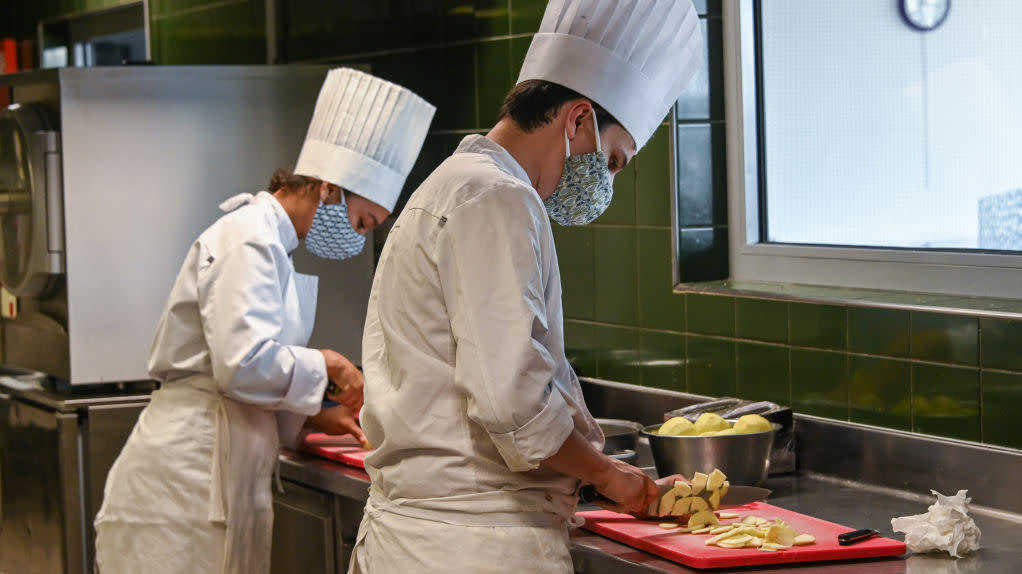Is Your Sense Of Taste Still Distorted By COVID? There's A New Cookbook For That.
One of the most disorienting symptoms of COVID-19, as we all know by now, is the loss of the sense of smell. Since smell is about 80% of taste, that often goes away, too. Or else it gets distorted and normally pleasant and delightful foods like chocolate, garlic, and roasted meats suddenly smell and taste disgusting. Some COVID long-haulers haven't been able to eat normally for nearly a year.
But help is on the way! Two British chefs, Ryan Riley and Kimberley Duke, have written a cookbook that is designed to stimulate those dull senses. It's called Taste & Flavour, and its promotional copy promises "ingredient combinations, along with textures and other sensory factors, that we hope will help you derive pleasure from food – and we've excluded the ingredients we now know most people with Covid don't fancy."
Riley and Duke are childhood friends whose mothers both died of cancer. Both mothers underwent chemotherapy, which damaged their senses of taste. "I was [my mother's] primary caregiver, and it was a very traumatic and awful time," Riley told The Washington Post. "Through that period, I saw it wasn't just the treatment that was impacting her quality of life; it was also that she wasn't enjoying food and lost her appetite." Riley's mother had also been an avid cook, which made her lack of enjoyment of food even more distressing.
In 2019, the two friends opened Life Kitchen, a free cooking school in Sunderland, England, to teach cancer patients new cooking skills that might restore their pleasure in eating. They based their lessons and recipes on research by Barry Smith, co-director of the Center for the Study of the Senses at the University of London, who explained to the Post that there are three major categories of smell and taste dysfunction: anosmia, the complete or partial loss of smell; parosmia, a distorted sense of smell; and olfactory hallucinations. The loss of smell, he added, can be very depressing, and some patients overcompensate by eating too many sugary foods.
It was easy to expand Life Kitchen to COVID patients after the pandemic hit last year. Then Riley and Duke and their team decided they should create a cookbook for COVID patients. They started with 300 recipes and narrowed the list down to 17 with the help of COVID long-haulers who volunteered to be testers. The recipes emphasize texture and layering and include lots of umami flavors, which stimulate the salivary glands, and exclude onions and garlic, which parosmiacs find disgusting. Among the offerings are veggie pineapple tacos, umami biscuits, and baked vanilla oats with cardamom, raspberry and rose syrup.
The cookbook, which was released on March 29, is free and available for download. (Hard copies are also available for the cost of postage, £3 in the UK.)
